- Research
- PhD 2021
- Veterinary Medical Sciences, Public Health and animal welfare
- Cellular and Molecular Biotechnologies
- Food Science
- International Perspectives in Corporate Governance and Public Administration
- Processes law harmonization between history and system
- History of Europe from the Middle Ages to Contemporary Age
- Economic and social sciences
- University Research Catalogue
- Studying at UniTe
- A Guide for international students
- International Welcome Office
- The Italian University System
- Enrolment Procedures for EU Students or Holders of a Residence Permit in Italy
- Enrolment Procedure for Non-EU Students
- Chinese Students under the "Marco Polo" Project
- Erasmus Incoming Students
- Tuition fees
- Applying for an Entry Visa or a Residence Permit
- The Centre for Modern Languages
- Scholarships and financial support
- Health Services in Italy
- Job Placement Service
Legal Services

- Legal Services
Programme Director: Prof. Antonio Marchesi | amarchesi@unite.it
First-Cycle Degree Programme
The First-Cycle Degree Programme in Legal Services provides students with legal knowledge as well as professional skills. By offering three extremely definite curricula, such Degree Programme aims at understanding specific problems and, at the same time, acquiring the instruments needed to deal with them.
It cares for this view already in the first year of study, shared by all the curricula, offering teaching/learning activities and methodologies required to meet the specific needs of this Degree Course, in accordance with the main purpose of thoroughly laying the foundations of law studies in compliance with Ministerial guidelines. In the following two years, the Degree Programme is divided into three curricula:
- Labour and Corporate Relations Advisors;
- Administrative Officers;
- Criminology, Investigation and Security Techniques.
The curriculum Labour and Corporate Relations Advisors trains students to manage and protect labour relations – chiefly in the private sector – under all its forms and applications, thanks to a wide set of teaching/learning activities ranging from the various branches of Labour Law and Trade Union Law, as well as Tax Law and Labour Taxation, Occupational Medicine and European Employment Law. This curriculum gives specific training to become a Labour Consultant, also by laboratories that train for passing the relevant exam. In particular, an agreement has been concluded with the Order of Labour Consultants to allow students in the last year of the course to carry out a professional training. Furthermore, graduates will be able to manage human resources and industrial relations in private business sectors, to manage human resources in Public Administrations, to protect workers in the appointed administrations and in other various specialized bodies.
The curriculum Administrative Officers trains students to carry out clerk or officer tasks in mainly public administrations – or actively involved with them – and equips graduates with complete knowledge to face exams for the third functional level in Public Administrations. The employment opportunities cover all the sectors of Public Administrations: regional and local authorities, ministries, judicial and penitentiary administrations, and so on. This curriculum focuses on administrative topics and its peculiarity is to pay attention to cultural issues, such as the history of public administration, but also to those matters challenging office workers and public administrators in contemporary world, through such teaching/learning activities as Anti-Corruption Law, Public Economic Law, The Civil Liability of Public Administrations, Principles of Economic Statistics. Furthermore, this curriculum is fit for those already employed in public administrations and wanting to complete their education, in order to upgrade in their career ladder and/or move to another organization or administration.
The curriculum Criminology, Investigation and Security Techniques allows students to acquire a wealth of knowledge – interdisciplinary too – enabling them to study in depth criminal phenomena – also under a transnational perspective – to analyse the behavioural patterns of both those committing a crime and those victims of a crime, to implement models to prevent and combat crime, as well as to understand the implementation of investigation and security scientific methodologies. Graduates will be able to enter a profession dealing with security both in public and private sector, as well as to work as freelance professionals specialized in crime phenomena and the investigation techniques needed to repress them, for example either as a criminologist or a private investigator or as a judicial assistant for interpreting reports and technical consultancies in public or legal sector.
In these three curricula, traditional learning methods are combined with a wide range of internships, the use of legal clinics, the inclusion of laboratories, practical classes, seminars hosting professionals who will focus on current issues, together with relevant professors. These are considered elective teaching/learning activities, to be chosen on an annual basis in order to allow students as much flexibility as possible.
- Information
-
Quality and Teaching Support Service
tel. +390861266352
Campus Aurelio Saliceti - Via R. Balzarini 1 - Teramo
- Teaching organization
-

